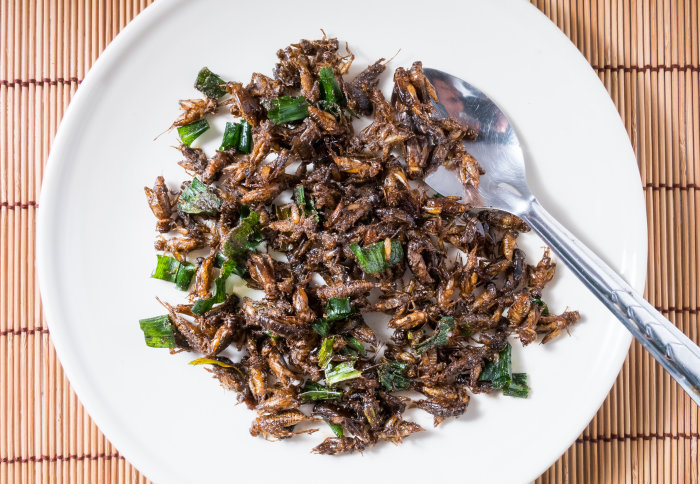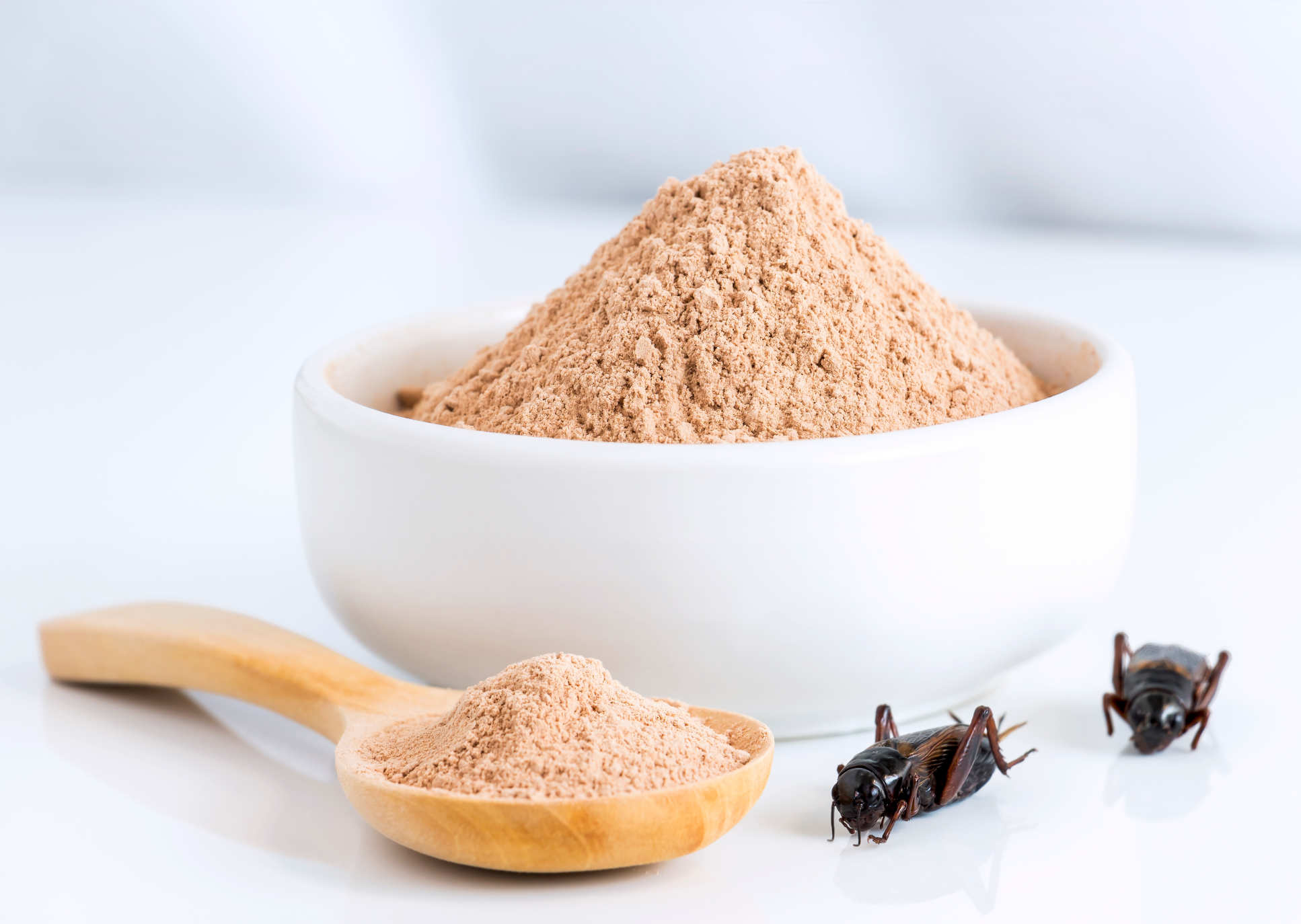Eating insects makes sense. So why don’t we?

Insects are a healthy and environmentally friendly food source. But how can people in the Western world be convinced to eat them?
Consuming insects is already an everyday practice for two billion people worldwide, largely in the global east and south. Rearing them uses less land, energy, water and produces fewer greenhouse gases than traditional meats like chicken and beef, and more of their body is digestible (80-100 percent, compared to only 40 percent for beef).
Research has shown there is a real growth market opportunity in insect food products, if only we are smart about how we tempt consumers. Dr Tilly Collins
They are also better for us: they are rich in protein, fat, and energy and can be a significant source of vitamins and minerals. But the Western world has still not embraced this wonder food.
Researchers think they know why: the ‘disgust’ factor. Insects are gross. The more interesting question is: given the enormous benefits, how can we convince people to get over the grossness?
Dr Tilly Collins, from the Centre for Environmental Policy at Imperial, has been investigating that question for a while. Her latest paper on the subject, written with a former MSc student Pauline Vaskou, will be published in a special issue of the Annals of the Entomological Society of America.
“Nutritional arguments have not been enough to overcome the disgust factor for Western consumers, but interest in eating insects is rising in these countries – at least conceptually,” says Dr Collins. “Now is the time to capitalise on interest bubbling to the surface. Research has shown there is a real growth market opportunity in insect food products, if only we are smart about how we tempt consumers.”
Lessons from lobsters
After all, it’s been done before. Lobster has a startling trajectory as the food of slaves and prisoners in 1800s America to high-society dinner staple and ‘nice meal out’ today. In its early days, lobster was abundant and considered gross, much like insects. It got its biggest break thanks to World War II – it was a source of protein that wasn’t rationed.

But before that, in the 1880s, it got a small boost from being served on railways – away from the sea it could be seen as a delicacy, a curiosity.
Sushi has seen a similar rise to fame from disgusting idea – eating raw fish – to delicacy and now lunchtime staple, served up in supermarkets.
What can the campaign to eat insects learn from these experiences? “One of the things that makes sushi popular is its adaptability. There are high-end, aspirational outlets but also accessible and flexible options, marketed to the young – picture Yo Sushi’s colourful dishes that you can pick and choose from. You don’t even have to eat raw fish – you can start with the cucumber ones,” says Dr Collins.
It’s this range and adaptability to different market sectors that is most likely to bring about success in the eating insects game, she adds.
Mealworm mince and insect energy bars
In the latest research, for example, a range of marketing influences was examined, from what people are willing to pay to how the format of the food affects how willing someone is to eat it. “Dried-cricket snacks have fun novelty value, but if we are serious about getting people to eat insects regularly, then the less visible they are the better,” she says.
One of the best options for this appears to be insects as mince – mealworm mince burgers have been on sale in Holland since 2014 – but there is also real potential in ‘snack’ insect products, such as energy bars marketed on their high protein value.

Dr Collins’ study is also one of the first to do market research with children, as part of an outreach collaboration with local schools in London. She and her team found that six to 11-year-olds are most likely to eat insects and to positively influence their peers, presenting an opportunity to educate early and grow a generation already comfortable with the idea.
There is also a side benefit to targeting children – insect snacks offer a viable alternative to many high-sugar snacks commonly marketed to school-age children that contribute to rising obesity levels.
For adults, ‘green’ and nutritional arguments do less to convince them than simply seeing other people eating insects, especially their friends. But one of the most convincing arguments may still be to come; as more of the world consumes traditional meat, its price may rise as it becomes more unsustainable. Modelling future insect and meat prices could find a point where eating insects just makes sense.
However insect products are marketed, Dr Collins is positive about the direction research and industry is taking. “There have been smaller bodies doing things to promote insect-eating for a while, and we are starting to build cohesion between them. My hope is that research like ours will convince academia, industry and government to collaborate in fostering an environment where people will not only be able to buy sustainable insect products, but will enjoy them too.”
-
As a more sustainable food source, eating insects could help us reach climate targets. Find out more about what you can do to tackle climate change with the Grantham Institute's "9 things you can do about climate change", including eating less meat and dairy (and perhaps more bugs instead).
-
‘Insect food products in the Western world: Assessing the potential of a new ‘green’ market’ by Collins, C. Matilda, Vaskou, Pauline, and Kountouris, Yiannis will be published in Annals of the Entomological Society of America.
Article text (excluding photos or graphics) © Imperial College London.
Photos and graphics subject to third party copyright used with permission or © Imperial College London.
Reporter
Hayley Dunning
Communications Division